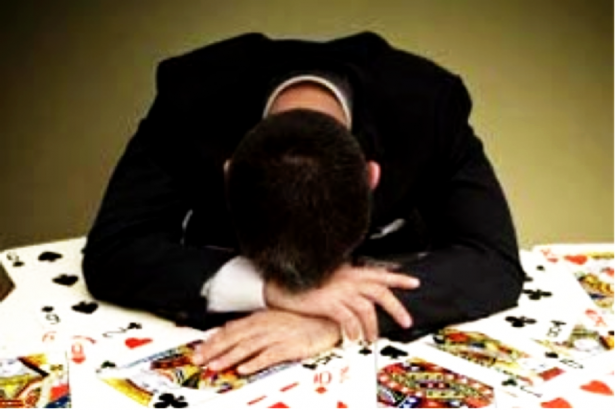Gambling Addiction: A Compulsive Behavior

Most tend to associate substance abuse, such as drug and alcohol addiction, as the most common addictive behaviors. However, according to the Diagnostic and Statistical Manual of Mental Disorders: Fifth Edition, gambling disorder is now classified as a behavioral addiction as well. Although gambling may not cause an addiction in all people, it has the potential to cause extreme levels of harm to a person’s mind, environment, finances and familial life. Several other conditions have been proposed to possess similar symptoms to this addictive behavior; however, more evidence is needed to provide verifiable links between other compulsive behaviors and mental health.
Excessive gambling may be demonstrated as a co-occurring mental health disorder, or a dual diagnosis mental health disorder. Therefore, mental health professionals must rule out any other mental health conditions as a contributing factor before proceeding with treatment for gambling addiction. For those with gambling and substance abuse addiction, treatment in a dual diagnosis treatment facility is usually required.
Nine symptoms constitute the criteria for gambling addiction diagnoses, according to the Mayo Clinic. A person must exhibit at least four of the following symptoms within one year to qualify for a gambling addiction diagnosis. The symptoms of addictive gambling include:
Preoccupation with gambling
Increased spending on gambling
Inability to control gambling
Irritability and restlessness when attempting to stop gambling
Tries to win back losses through additional gambling
Lies to others to hide gambling actions
Asks others for money to continue gambling
Places relationships, employment or other responsibilities at risk for loss due to excessive gambling
Uses gambling as a means of escaping emotional feelings, such as sadness and anger
The exact cause of compulsive gambling has not yet been identified. However, the instant rewards in gambling may trigger a dopamine release, which could help strengthen the budding addiction. According to the Mayo Clinic, those with gambling addiction tend to suffer from drug abuse, alcohol abuse or other severe mental health disorders. Younger individuals and males, also those with a family history and dopamine agonists—medications for the treatment of Parkinson’s disease—may be at the highest risk for developing a compulsive gambling addiction.
Compulsive gambling treatment includes psychotherapy and medications. However, the presence of a co-occurring mental health disorder, especially substance abuse, requires treatment for both conditions in order for one to make a full recovery. For example, drug abuse programs benefit those suffering from drug and gambling addiction. A dual diagnosis treatment facility can help someone identify whether inpatient or outpatient treatment will be most effective for the treatment of a gambling addiction. Behavior therapy and cognitive behavioral therapy have been shown to help with the treatment of the irrational desire to engage in gambling. Mood stabilizers and antidepressants can help with withdrawal from gambling as well.
Considering gambling was not recognized as a real addiction in the past, modern mental rehabilitation centers have come a long way in identifying and treating gambling as a true addiction. If you or a loved one is suffering from gambling, drug abuse or alcohol abuse, there is help available. Treatment for gambling in a mental rehabilitation center begins with taking action now, call our facility today to speak with a representative for more information.
